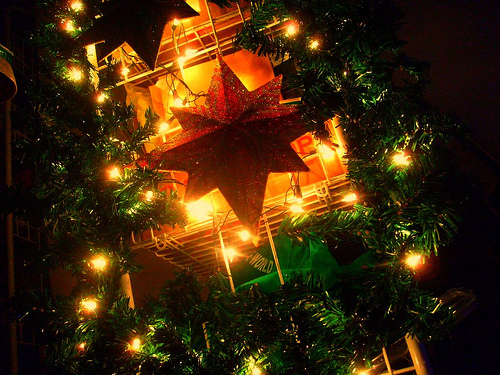
Photo: jekert
…St. Nicolas (called Sinterklaasavond) gives away his presents in Belgium and Holland on 5th of December. In these countries that day is more special than Christmas itself. The Christmas tree is decorated on 24th of December and gifts are given again on Christmas Eve or Christmas Day, by a similar character named Sinterklaas and his servant Zwarte Piet (Black Peter).
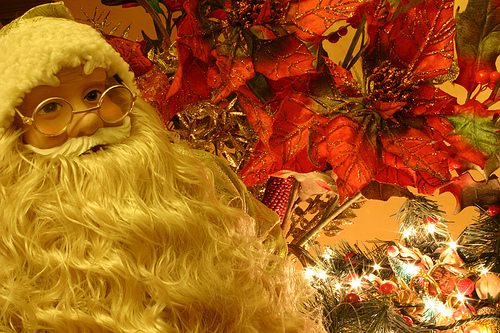
Photo: krisdecurtis
The Christmas tradition in Germany depends on the region, but December 6th (like December 5th in the Netherlands and Belgium) is a special day – kids receive gifts and “meet” St. Nicolas. However, the real holiday and exchange of gifts is Christmas Eve – a tradition initiated after Martin Luther King encouraged attaching importance to the day related to the birth of Jesus instead of a saint’s feast, and the gifts had to be deserved with a good behavior. After dinner the father of the family turns on the Christmas tree lights; carols are sung and the gift opening begins.

Photo: jule_berlin
Germany
The Norwegians celebrate Christmas with a traditional dinner and a traditional Christmas TV program, which includes the “Three Nuts for Cinderella” fairy tale. The Christmas Day, 25th of December, is celebrated quietly and it is usually a day of rest. People may go to church and afterwards relatives gather for a family luncheon.
The Finns clean their homes well before the beginning of the holiday season. The Christmas tree has a luxurious decoration (fruits, sweets, paper flags, cotton and garlands) and people place racks with nuts and seeds for the birds in the gardens of their houses. The gift exchange begins after the dinner, and the greeting of the Finns for the holiday is Merry Yule.

Photo: krisdecurtis
In Sweden the Christmas holidays begin with the St. Lucia day (13th of December). The Swedish Santa Claus, Jultomte, does not waste efforts entering homes through chimneys on Christmas Eve, but he knocks directly on the door with the question instead: “finns det några snälla barn här?” (Are there any good children here?). On Christmas Eve the Swedes prepare various dishes and – if Jultomte has not been prevented from arriving – the gifts (left under the decorated Christmas tree days before) are unpacked. On 13th of January, 20 days after Christmas, the decorations are removed.
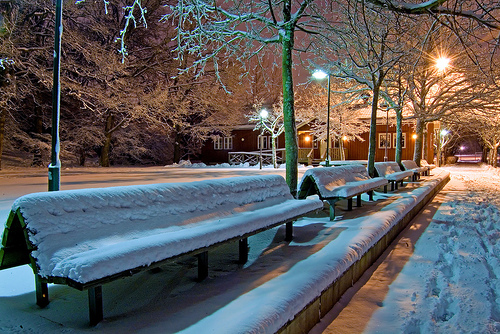
Photo: chile-suecia
Sweden
Christmas in France is mainly a religious holiday. Children leave socks near the fireplace in order to receive gifts; the decoration in many French homes consists of themes, depicting the birth of Jesus; masses are attended.

Photo: krisdecurtis
In Spain the Christmas holidays, known as Navidad, continue till 6th of January. The dinner on Christmas Eve has varied dishes, close and distant relatives gather and celebrate till the early morning hours.
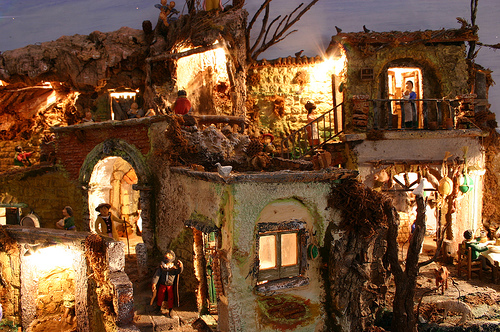
Photo: krisdecurtis
In Italy the holiday has a strong religious significance and a part of the immutable tradition is the “presepe” – Nativity scenes recreated through figurines, as well as icons, sculptures, and paintings. Seafood is predominant on the Christmas menu.
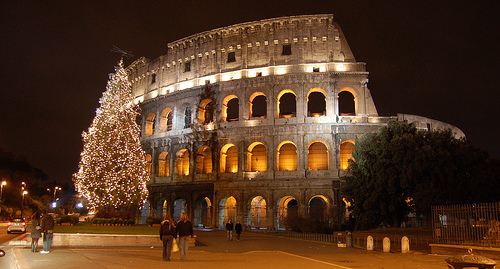
Photo: yakobusan
Italy
In Greece, just like in Spain, the Christmas season lasts between 24th of December and 6th of January. Gifts are left under the Christmas tree and opened on New Year’s Eve, when according to the Greek tradition Santa Claus is visiting the children. Carols are sung on New Year’s Eve as well.
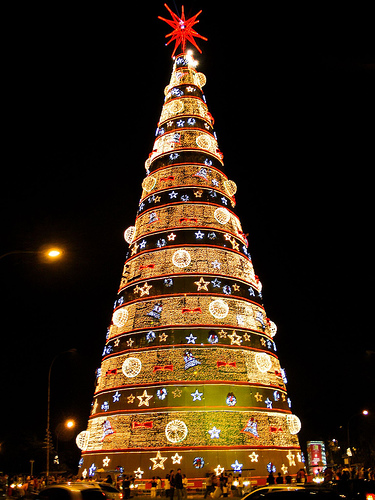
Photo: denise_mayumi
Christmas in Romania is one of the most important religious holidays after Easter. The Christmas tree is decorated on 24th and in the evening Moş Crăciun gives presents away. On the Christmas Day carol-singers go into the streets of towns and villages, carrying a cardboard star and images of Nativity scenes.
Christmas – no matter how different the traditions on this holiday are, there is something common which can be felt in every country embraced by the Christmas spirit – a “mix” of love, smiling and happy people, expression of faith and hope. And let every new day of the New Year be even a bit happier than the previous one for all of us.

Photo: oth313

Photo: rexandsharkey











4 comments so far ↓
Nobody has commented yet. Be the first!
Comment